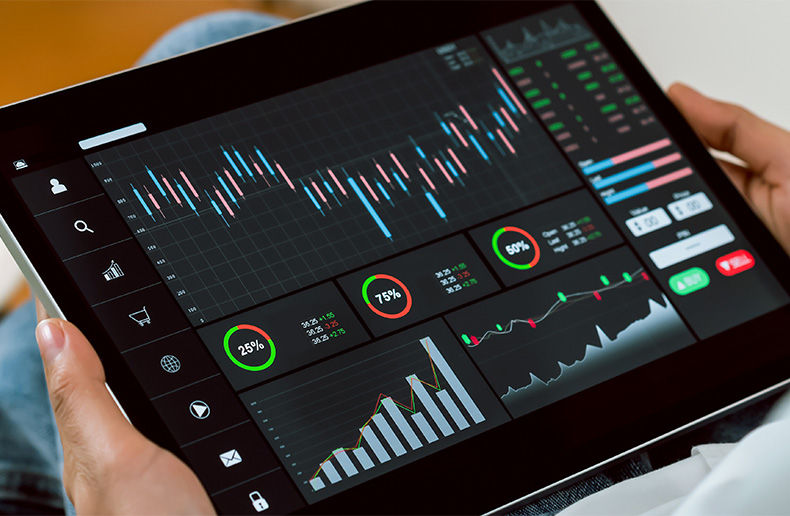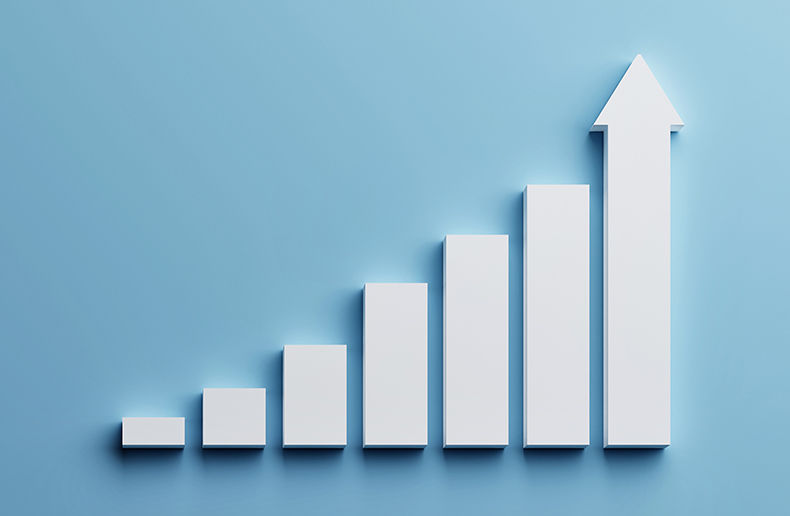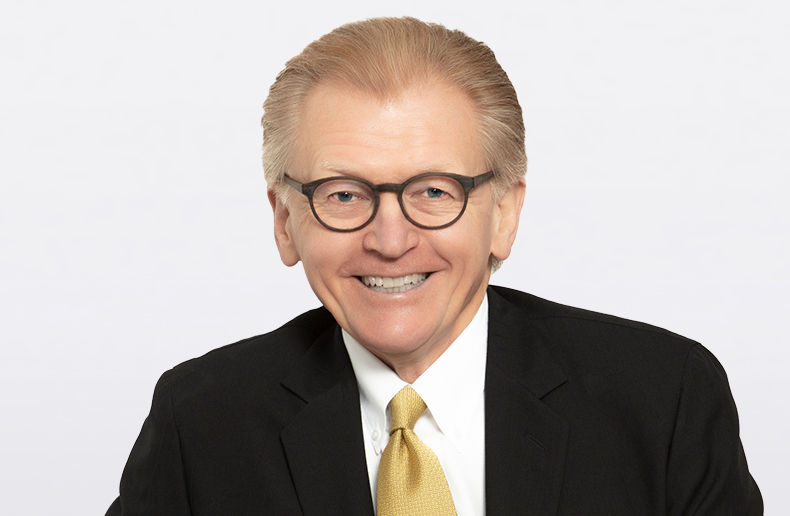The Canadian exchange-traded funds (ETF) industry saw inflows of 5 billion dollars in May 2024, according to the June Canadian ETF Flows report from National Bank Financial Markets (NBFM).
May's net sales were slightly lower than the $5.3 B recorded in April. They nonetheless mark five consecutive months of strong growth in 2024. From the beginning of the year to the end of May 2024, the ETF market attracted net inflows of $24.2 billion, up 58 per cent from the same period in 2023, when ETFs gathered net sales of $15.3 billion.
In May 2024, equity ETFs led the pack with inflows of $3 billion, followed by fixed-income ETFs and multi-asset ETFs, which respectively attracted inflows of $1.7 billion and $321 million.
ETF assets totaled $431.6 billion as of May 31, 2024, compared to $415.3 billion as of April 30, 2024. This represents an increase of 3.9 per cent.
A concentrated market
The majority of Canada's 40 ETF providers saw inflows in May, according to the NBFM report. Among these competitors, three players stand out. RBC iShares, BMO, and Vanguard collectively hold 63.8 per cent of the ETF assets under management in Canada.
Smaller players also shone. Ranked 13th among major ETF providers, Desjardins experienced a substantial increase in inflows. At $540 million, they represented an 18 per cent rise compared to its assets under management as of May 1, 2024, the most significant increase in the Top 20. Desjardins has $3.6 billion in assets under management.
In comparison, Vanguard had the highest inflows at $927 million, a 2 per cent increase compared to its assets under management as of May 1, 2024. During the same period, BMO garnered $506 million in its ETFs, for a one per cent increase. RBC iShares' inflows of $491 million saw an even less significant increase.
Besides Vanguard, only TD Asset Management and Fidelity Investments exceeded Desjardins' inflows of $540 million in May. Their ETFs gathered inflows of $615 million and $570 million, respectively. For TD, the inflows led to a 4 per cent increase in assets, and for Fidelity, an 8 per cent increase.
The index fund magnet
Core index funds acted as a magnet for ETF sales in May 2024. Most of the $540 million inflows garnered by Desjardins in May 2024 came from its core index funds. For example, the Desjardins American Equity Index ETF (traded under DMEU on the Toronto Stock Exchange) gathered $373 million in May, and the Desjardins International Equity Index ETF (DMEI) collected $140 million. The DMEU ranks fourth in the market in terms of inflows.
The BMO Aggregate Bond Index ETF (ZAG) followed closely with inflows of $291 million. This BMO ETF seeks to replicate the performance of the FTSE Canada Universe Bond Index.
RBC iShares lead the inflows ranking in May 2024, with $502 million in the iShares Core S&P/TSX Capped Composite Index ETF (XIC). As its name implies, this fund aims to replicate the performance of the S&P/TSX Capped Composite Index of the Toronto Stock Exchange.
Vanguard ranks second with inflows of $426 million into its Vanguard S&P 500 Index ETF (VFV), a fund linked to the same index, aiming to replicate the performance of 500 large publicly traded American companies.
In a blog post on the benefits of index funds, Empire Life Investments – the portfolio management subsidiary of Empire Life – extols the diversification provided by indexes. "If you are invested in an index fund that tracks the S&P 500, you will gain exposure to approximately 500 underlying stocks and 11 sectors that are part of the index," it says.
Empire Life mentions that the S&P 500 Total Return Index has achieved an average annual compounded return of approximately 10.5 per cent in US dollars since its inception in 1957. "Over this period, the effect of re-investing dividends accounted for over 86% of the total return," adds the portfolio manager.
Trend obsession
Investment diversification also helps avoid the obsession with trends, according to an Empire Life Investments blog post on the subject. This obsession can lead investors to abandoning their investment objectives in pursuit of returns, a phenomenon the manager refers to by the acronym FOMO (Fear of Missing Out).
According to the blog, many investors will eventually fear missing an investment opportunity because a trend temporarily drives up the price of a stock.
Empire Life cites the rapid rise of stocks related to artificial intelligence, known as the "Magnificent Seven" (Alphabet, Amazon, Apple, Microsoft, Meta, NVIDIA, and Tesla), as an example of a trend. The manager considers it risky to join an ongoing bullish trend: "Market sentiment may start to turn after you have made the investment," it warns. Predicting such a reversal is challenging, it adds.
Reacting impulsively to market ups and downs can be costly for investors. Empire Life Investments recalls the enthusiasm for the technology sector that swept the markets in the late 1990s. "Technology stocks saw a runup in the late 1990s early 2000’s due to the rapid growth of investment in internet-based companies. As shown in the graph below, an investor who invested in a technology focused portfolio, as represented by the Nasdaq Composite Index, in October 1999 before it reached record highs would have seen their investment soar before plummeting below the value of their initial investment in just 13 months," it notes.
An actively managed fund reflects the current trend towards technology stocks and saw its share of success in May 2024. Ranking fifth among the top 20 ETF market share players in Canada, CI Global Asset Management saw its CI Global Artificial Intelligence ETF (CIAI) gather $454 million in inflows during May, the second-best result in the market. The CIAI began trading on the Toronto Stock Exchange in May 7, 2024.
When to choose
Senior wealth advisor and portfolio manager at National Bank Financial, Cimon Plante suggests that investors building their portfolios should choose their securities wisely and accept occasional mistakes.
In his video segment published on June 16, entitled "Nothing ventured, nothing gained," he quotes Warren Buffet, CEO of Berkshire Hathaway, from his 2022 letter to investors. Essentially, the billionaire said that in 58 years of management with Berkshire, most of his investment decisions have been so-so. He attributes his satisfactory results to about a dozen truly good decisions.
"It surprises people. When Berkshire Hathaway buys a stock, everyone follows, thinking Warren Buffet saw something others didn't," comments Cimon Plante. Yet, Berkshire Hathaway retains only a fraction of the stocks it buys in the long term, he adds.
After a year, Berkshire Hathaway sells 60 per cent of the stocks it bought, according to the National Bank Financial expert. "Less than 4 per cent of the stocks remain in its portfolio for more than 10 years. A handful of stocks made the difference in its performance," emphasizes Plante. Among these stocks are Geico, Coca-Cola, American Express, Gillette, Apple, and The Washington Post.
Cimon Plante says this investment approach is accessible to everyone. But it requires discipline. He notes that many investors have the reflex to sell winning stocks to realize gains and keep losing stocks, hoping to recover. He encourages investors to follow Warren Buffet's approach of selling losers and keeping winners. "Did you buy Couche-Tard or Dollarama years ago, and they're still winners? Keep them," insists Plante.





















